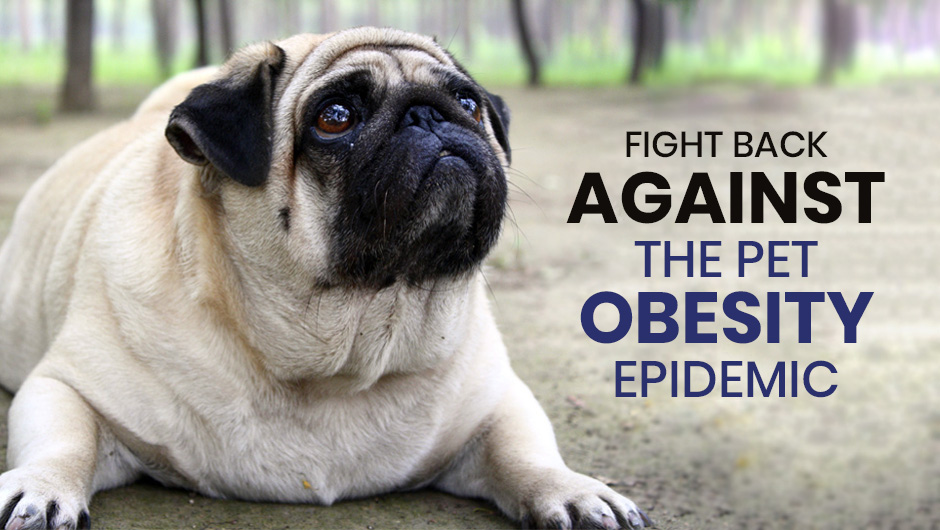According to the Association for Pet Obesity Prevention, 54 percent of dogs and 58 percent of cats in the United States are overweight or obese. This is an alarming trend that has become a national epidemic. The numbers are especially worrisome when a pet reaches the obese category, defined as 30 percent or greater than the ideal body weight for his or her age, gender, breed, and species.
Just like humans, excess weight can cause a host of health problems in pets. Some of these include heart disease, cancer, and diabetes. Being overweight or obese also affects the quality of life of a companion animal. He may have difficulty breathing or walking, suffer from chronic joint pain, and not engage as much with the family due to a lack of energy. While it might seem obvious that a pet weighs too much, more owners than not fail to recognize it.
How Many Calories Does Your Pet Actually Need?
While the daily caloric need is 2,500 for men and 2,000 for women, it is significantly lower for pets. In fact, an animal that weighs 10 pounds or less can subside on less than 200 calories per day. Even a dog who weighs 50 pounds only needs 700 to 900 calories daily. This Pet to Human Weight Equivalent Chartreally puts things into perspective.
Helping Your Pet Slim Down
Knowing how many calories your pet consumes each day is the first step in fighting the battle of the bulge. While you’re figuring this out, be sure to use a measuring cup to fill your pet’s food dish. Many pet parents make the mistake of keeping the bowl full at all times, which means a dog or cat could graze all day if she wanted to. When it comes to treats, remember that ingredients matter. You don’t have to stop giving your pet treats, but make sure they’re sugar-free and made from nutritious ingredients.
Both dogs and cats benefit from regular exercise. Dogs need to walk for up to 30 minutes each day to burn off energy, reduce behavioral problems, and boost their natural immune function. While cats do sleep up to 16 hours daily, spending 15 minutes each day chasing string or a laser pointer can help keep excess weight at bay.
Make an Appointment with Minnesota Veterinary Hospital Before Changing Your Pet’s Diet
Pets are sensitive to food changes, even when it’s the best thing for their health. We encourage you to schedule an appointment with your pet’s regular veterinarian before making any changes. During the appointment, one of our veterinarians will determine the ingredients in your pet’s current food as well as ask about treats and exercise. If appropriate, we will recommend a specific brand of food made especially for pets who need to lose weight.
Photo Credit: Daizuoxin/iStock Photo

